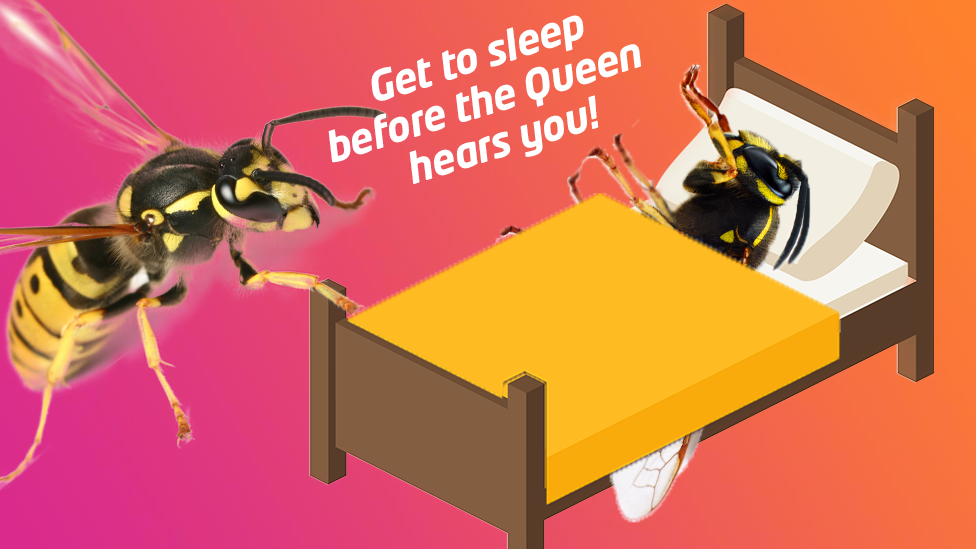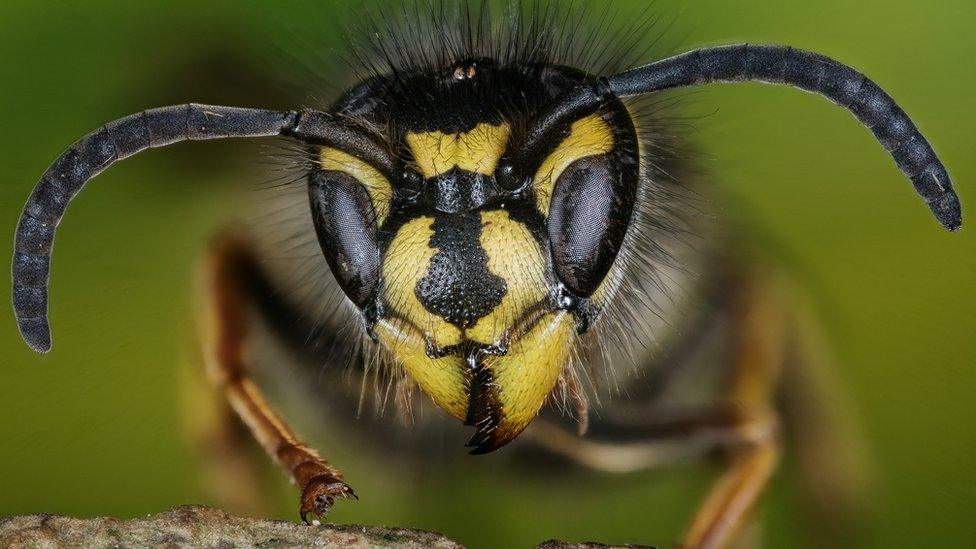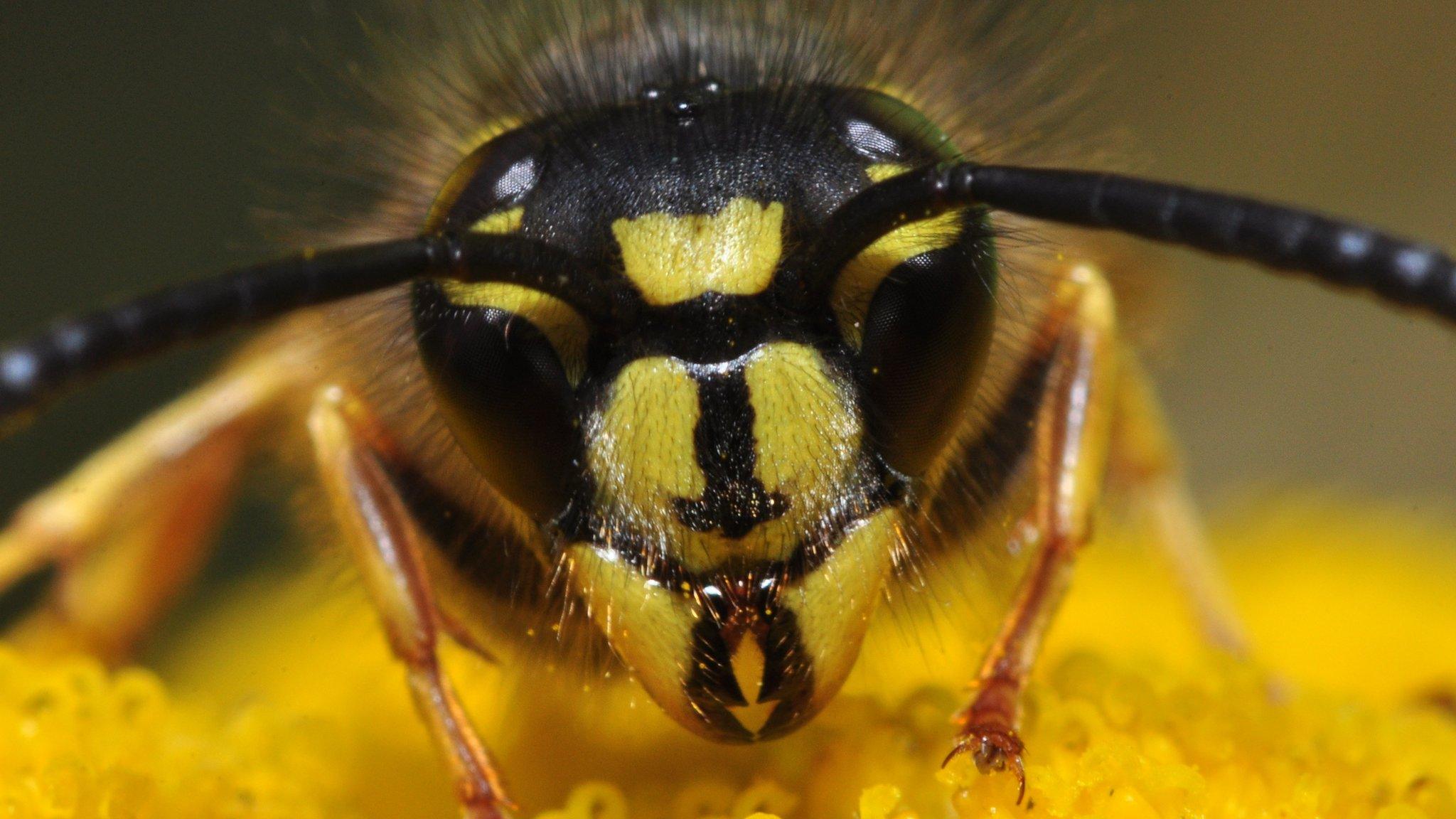Wasps babysit for each other when they are not too busy!
- Published

A group of scientists studying tropical wasps were stunned to discover the usually mean-spirited insects "babysit" larvae for wasps in other nests.
This surprised them because wasps are known in the biological world for being extremely hostile or aggressive towards outsiders - even other wasps.
But this particular study, which took place in Panama, Central America, observed that wasps provide support to their extended families by 'babysitting' at neighbouring nests.
They concluded that this behaviour might be down to the species wanting to pass on more copies of their genes.
Researchers closely observed 20,000 baby wasps and their 'carers' (also known as workers) on wasp colonies around the Panama Canal.
They found that these worker wasps became less useful as the number of colony members rose. They became lazier as there were so many other worker wasps to help out!
WATCH: Why wasps aren't as nasty as you might think!
What jobs does a wasp have to do?
A queen wasp builds the nest, prepares food, collects water and lays her eggs. When the larvae develop, they take over lots of these jobs.
But as more and more wasps are hatched, the fewer jobs there are to go around. So many of the workers leave their home to go and "babysit" at other nests!
The scientists say this behaviour offers an "amazing windows into the evolution of selflessness" - a trait that used to be thought to only be present in humans.
Dr Patrick Kennedy, of the University of Bristol said the team on the study "ended up being stung a lot but it was worth it!".
Rather you than us Dr Patrick!
- Published6 November 2019

- Published29 August 2018

